
As stated in one of our previous posts, resources are scarce to prepare for the
assessment of gifted and talented education (G/T entrance assessment). We believe, if a child sits for the G/T test in kindergarten, the following assessments are used: Guess What, Verbal reasoning, Odd-item out, and What’s missing. For upper grades, two more items might be used: verbal and nonverbal memory. You might be able to find resources and books for all the items. However, samples for
What’s missing-type questions are not abundant.
What’s missing in this picture game is an amazingly fun activity for kids when she/he is preparing for G/T or not.
In this post, we focus on some samples of What’s missing-type questions for the entrance assessment of the gifted and talented education. We specifically focus on “What’s missing in the picture” format. In the bottom of this post, you will find a PDF file containing all the samples used in this post and their keys.
What is “What’s missing”
As mentioned in the previous post, the “What’s missing” assessment uses pictures. The child examines a picture and discovers what key elements are missing. A picture may contain a car from which one wheel is taken away. Or, there can be a flag with a part of the flag-pole missing. Some pictures can be quite complex with multiple events in the same picture — such as a person is driving a car, a boy is flying a kite, and another person is driving a motorcycle. A critical component from one of the events can be missing. We believe the complexity of the images increases as the test is given to students of upper grades.
This post presents some easy samples as well as some slightly difficult samples for kindergarteners. We made these samples by combining and modifying images from the internet. The copyright of the images allows to reuse them with modifications.
An easy “What’s missing” question can be as simple as a picture of a car with a missing wheel. A difficult one generally contains multiple events in the picture and the child discovers the missing components of the picture.
An Easy example
The following example is probably suitable for a preschooler or even a younger kid. It can be a warmup question for a kindergartener if she/he was never exposed to “What’s missing” questions.
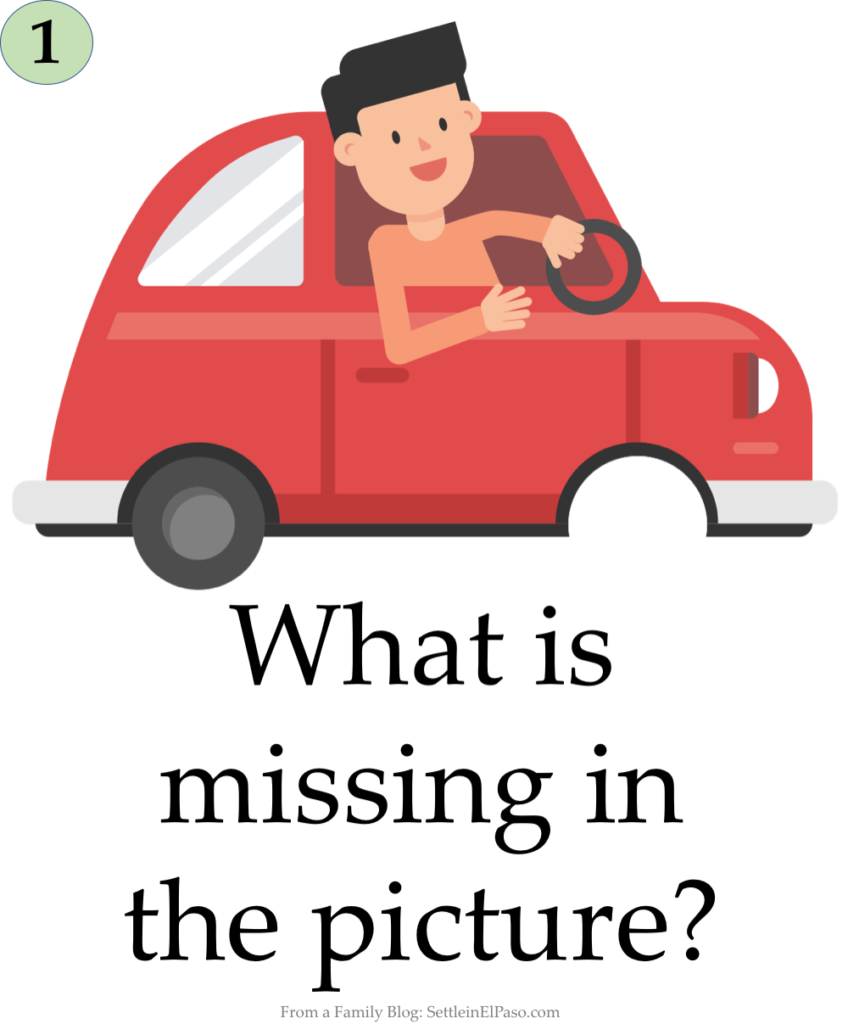
A comparatively harder example
The picture below provides a comparatively harder example than the one above. It might look easy to us but for a preschooler, a kindergartener, or a first grader, it might be difficult to find that the left arm of the boy flying the kite is missing.
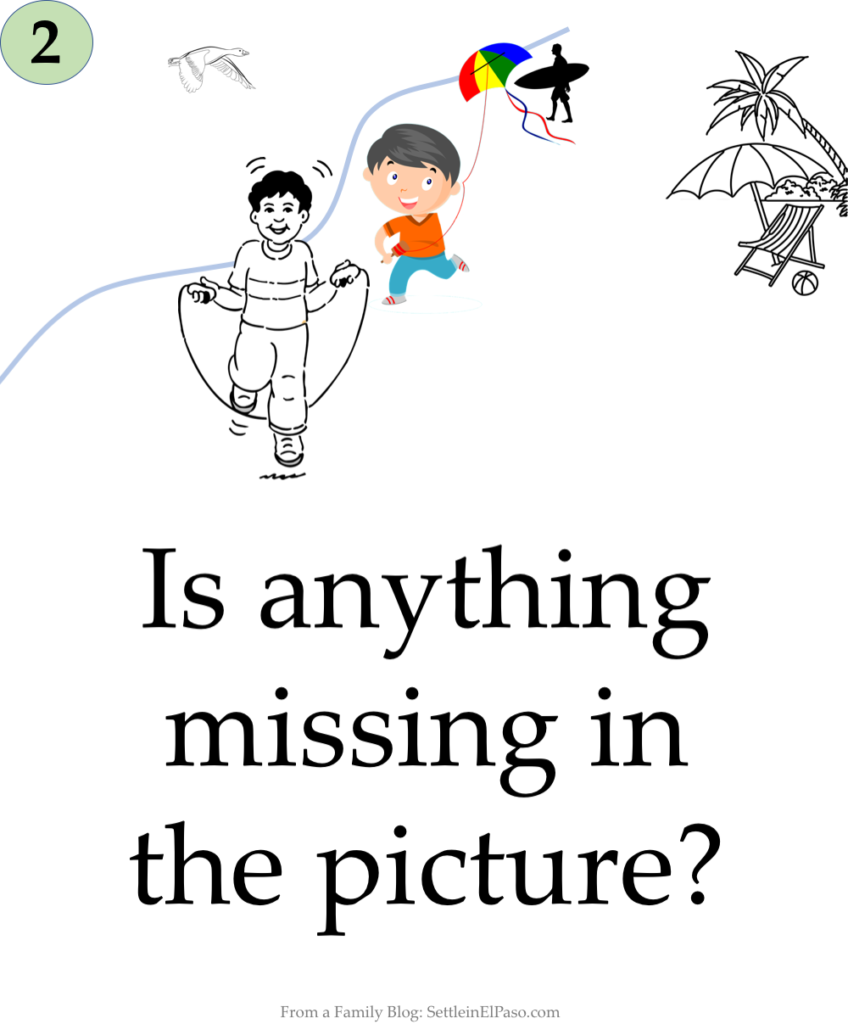
An example of moderate difficulty level
This is another example of a missing wheel of a car. Although the picture has some level of complexity, noticing the missing wheel might take only a few seconds. It is better not to show more than one “missing wheel” picture in a session because the attention automatically goes to the wheel after one such sample is shown.
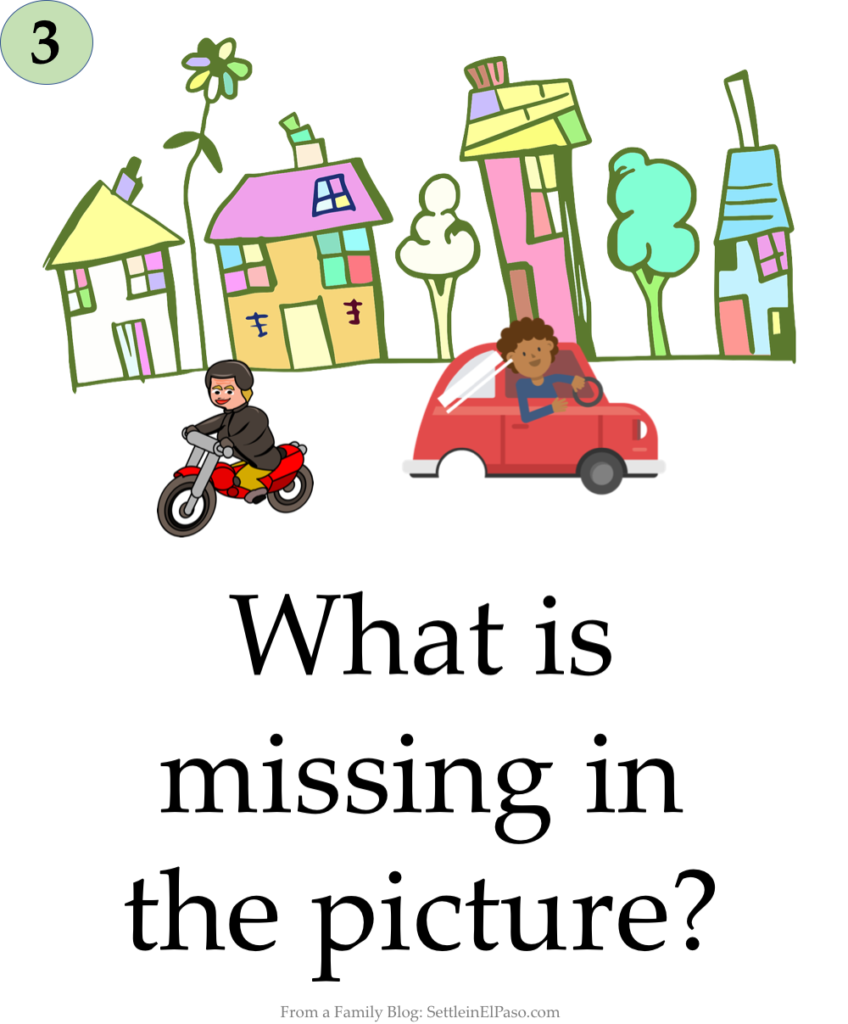
Missing wheel … Again?
The following picture has a scene where a few things are happening at the same time. A boy is flying a kite; someone is driving a car; another person is driving a motorcycle. The motorcycle is missing its front wheel.
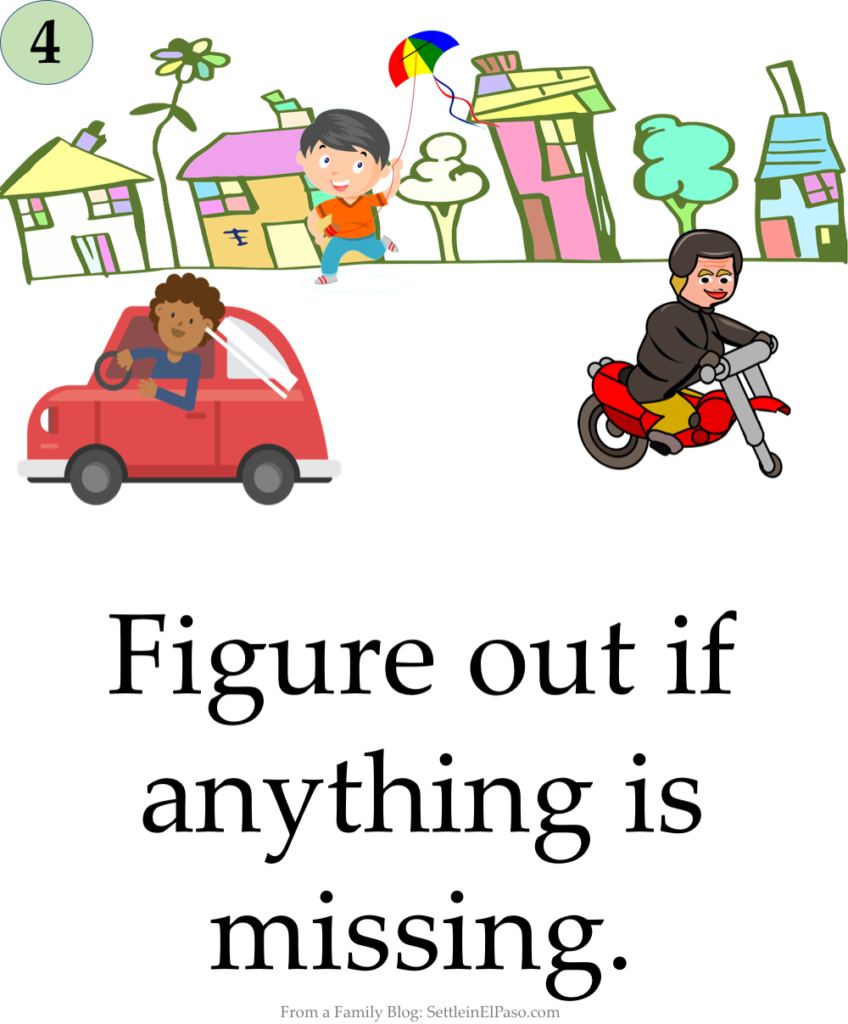
Missing wheel … again and again?
We have covered wheels of a car and a motorcycle. The following one is an example involving a bike. You might have already noticed that a part of the front wheel the bike is missing.
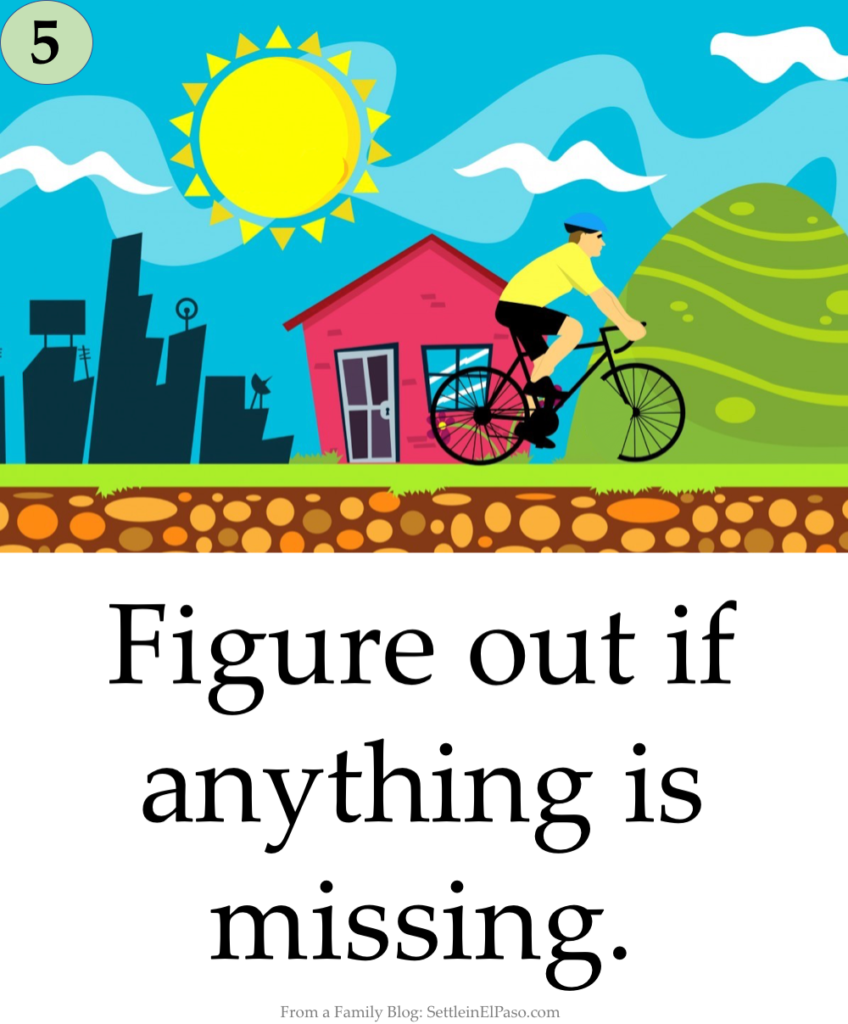
Our solar system
A G/T assessment may not always use scenarios from everyday life. There can be questions to test how much the student was exposed to science, which may include astronomy, seasons, and nature. The following picture provides a sample of something missing in the solar system. It is missing the planet — Uranus.
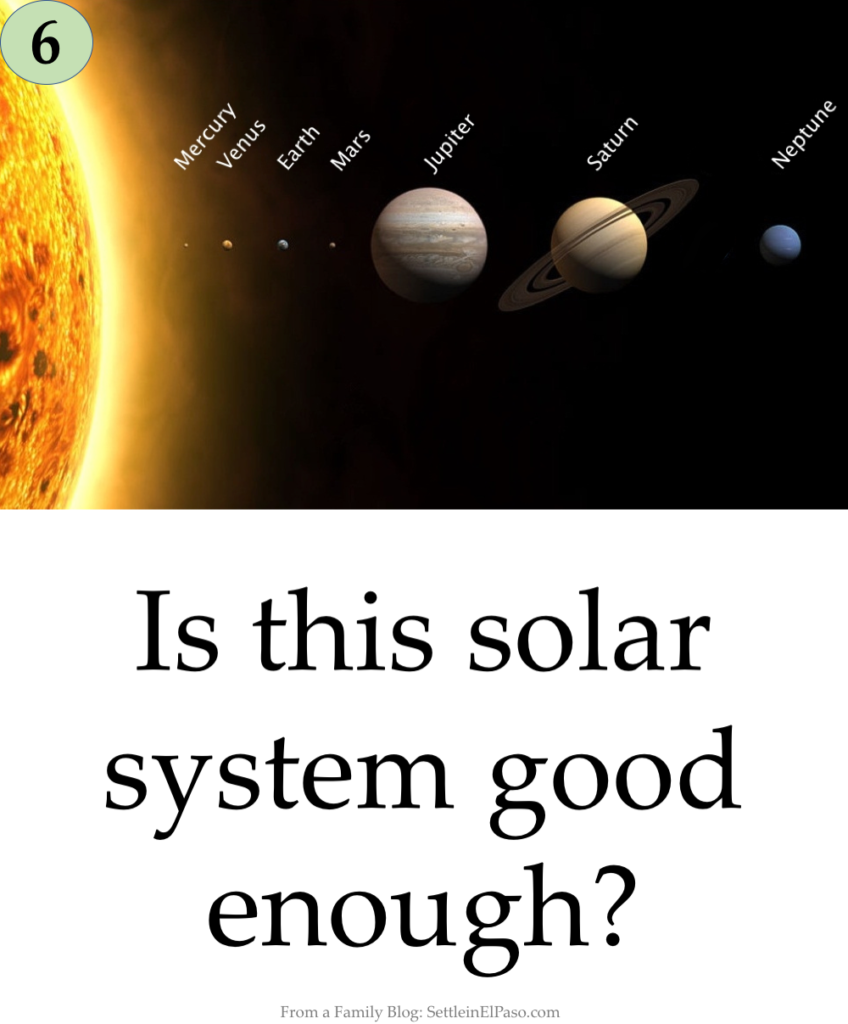
Download the What’s missing in this picture game worksheets
Here is the PDF that contains all the pictures used in this post and the keys:
PDF DOWNLOAD. Just click on the link; it is a direct link to the file; it will NOT ask for your email address. 🙂 We hope the PDF file will add something to your collection just like adding one drop of dew to an ocean full of water. 🙂
Concluding remarks
Regardless of the gifted and talented education, “What’s missing in the picture” game is of great fun. Parents can prepare pictures using internet resources and remove some of the key components of the pictures. Along with the fun part, such materials boost the development of children’s thought process.
Please share with us any experience you may have regarding the gifted and talented education, by leaving a comment in the Comments section below.
Have a wonderful day!
Settle in El Paso team
Related articles
Subscribe to receive notifications on our new posts.
Like this:
Like Loading...















Good educational resource you’ve created here!
Thank you for your wonderful comment. Have a great weekend!
Just respect children would do for me.
Kind regards,
Thank you for visiting and commenting. Have a wonderful week!
Well, I stared and stared at number 2 and still didn’t notice the missing arm so I guess I’m neither gifted nor talented 🙁
Haha 🙂 We did not mention that the assessment stops when five questions in a row are not answered correctly (or, may be four questions). That means — you are gifted and talented. 🙂 Thank you for reading the post and commenting. Have a wonderful rest of the Sunday.
That’s interesting. I was going to say PLUTO! But then I realized it’s meant to be Uranus. And I know Pluto is no longer a full-planet, but I still protest!
Haha ? we are with you in this protest! Thank you for visiting and commenting. Have a wonderful rest of the weekend.